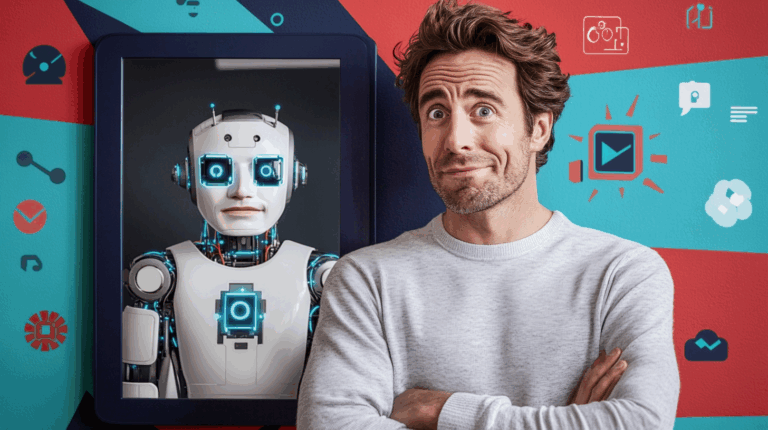The role of AI in tech recruitment and placement is transforming how companies attract, screen, and retain talent. Around 85% of recruiters think that AI is a useful technology that will replace some parts of the hiring process. As firms harness the power of AI to process thousands of applications daily, the evolving landscape of recruitment offers remarkable opportunities alongside notable challenges. Understanding both the potential and pitfalls of this new era is essential.
As more and more companies seek to harness the power of technology to improve their recruitment processes, questions arise about the potential risks and ethical considerations. Balancing efficiency with empathy, data with fairness, and automation with human touch is a delicate undertaking.
In this blog post, we’ll dive into how AI is affecting recruitment and placement in tech jobs, examining both the promising opportunities and the challenges that lie ahead.
Opportunities Unleashed: AI in Recruitment and Placement
Artificial Intelligence (AI) is revolutionizing the tech industry’s recruitment landscape. In the sections ahead, we’ll delve into making recruitment more interactive, enhancing efficiency, optimizing processes, and diversifying the talent pool while reducing bias.
Making Recruitment Interactive and Transparent
AI opens the door to a more interactive and transparent recruitment process for candidates. Through real-time chatbots and AI-powered platforms, candidates can engage with potential employers, ask questions, and receive immediate feedback. Transparency tools such as informing users whether and how their data is being used in algorithmic decision-making, can provide insights into how a resume is being evaluated. Google is known for its innovation and use of AI in various domains, and it has also developed its own AI resume screening technology called Cloud Talent Solution. A trained AI system is capable of scanning resumes, extracting keywords, scoring and ranking candidates, and even helping with interviews.
Enhancing Accuracy, Efficiency, and Cost Savings
With AI, recruiters can significantly improve the accuracy, efficiency, and cost-effectiveness of the hiring process. Automated screening tools can sift through large volumes of applications with precision, identifying the best matches based on specific criteria. For example, Workable’s AI tool can create multiple iterations of job descriptions in less than 30 seconds, saving time and effort for recruiters. Moreover, predictive analytics can forecast the likelihood of a candidate’s success within a role, minimizing hiring risks. These advancements lead to significant time and cost savings, making the recruitment process more agile and responsive.
Optimizing Recruitment Processes
AI enables companies to optimize various stages of recruitment, from crafting job descriptions, filtering CVs, predicting success, to onboarding. This optimization not only streamlines the hiring process but also ensures a more precise alignment between candidates’ skills and organizational needs, leading to more successful placements and a more cohesive workforce. AI-powered algorithms can analyze successful job postings and help in creating more appealing and effective job descriptions. For example, IBM uses AI to enhance its recruitment process, by using Watson Candidate Assistant, a chatbot that interacts with candidates and provides personalized job recommendations, based on their CVs, skills, interests, and goals while also helping candidates learn more about IBM’s culture, values, and opportunities.
Diversifying the Talent Pool and Reducing Bias
One of the main areas companies are putting focus on is employee diversity. With the help of AI, they can now reach the potential to diversify the talent pool and reduce bias in hiring decisions. By leveraging data and machine learning, AI can help identify candidates from various backgrounds and skill sets. For instance, McKinsey & Company exemplifies this approach by employing AI to identify and attract tech talent from diverse backgrounds and perspectives. Furthermore, AI algorithms can be designed to exclude factors that may lead to biased decisions, creating a more equitable hiring process. The utilization of AI in this manner reflects the company’s commitment to inclusivity and fairness within the recruitment landscape.
LinkedIn and Zoom Leading the Way with AI in Recruitment
Two tech companies making notable strides in implementing AI for recruitment and placement are LinkedIn and Zoom. LinkedIn, the renowned professional networking platform, leverages AI to create more personalized and effective connections between job seekers and potential employers. By analyzing preferences, past experiences, and skills, AI algorithms help match candidates with relevant jobs, enhancing the overall user experience. LinkedIn’s AI goes further, offering invaluable insights to recruiters on crafting job descriptions and measuring hiring performance.
Zoom, the well-known video conferencing platform, also harnesses the power of AI, not only to enhance its service through features like noise cancellation and virtual backgrounds but also to refine its hiring process. By partnering with Untapped, an AI recruiting platform, Zoom is able to streamline candidate assessments based on skills, personality, and fit, providing valuable feedback and coaching to ensure success in interviews.
These real-world examples illustrate how technology can be leveraged to make hiring not just more efficient but also more targeted and responsive to both candidates’ and recruiters’ needs. The success of these tech giants in integrating AI into their hiring practices offers a glimpse into the potential that AI holds for reshaping recruitment in the tech industry.
Navigating the Risks of AI in Recruitment and Placement
The integration of AI into recruitment brings undeniable benefits but also presents certain risks that must be considered. From privacy concerns and potential discrimination to the loss of personal touch and ethical dilemmas, these issues require careful attention. Below, we explore these challenges in detail.
Privacy Concerns and Discrimination Risks
The use of AI in recruitment can inadvertently lead to privacy concerns and an increased potential for discrimination. Algorithms that mine information about candidates may dig deep into personal details, raising questions about consent and appropriateness. Candidates might be unaware of how their data is collected, used, or shared, and may not have the means to opt-out or correct errors. This can result in unintended biases and discrimination, diminishing the otherwise positive aspects of AI-driven recruitment. An example of this could be Amazon – they claimed that the AI tool was found to be biased against women, as it penalized resumes that contained the word “women” or mentioned women-only colleges.
The Loss of Personal Touch
AI’s efficiency may come at the cost of personal engagement and connection. AI-driven interviews, while remarkably efficient, can lead to a lack of human interaction, making candidates feel less valued and missing the feedback that traditional face-to-face interviews provide. This absence of a personal touch can go beyond just feelings of alienation; it can harm the positive and encouraging recruitment environment that many companies strive to create. Without human insight and empathy, candidates might not get the nuanced understanding and personalized attention that can make an interview feel both meaningful and encouraging. Consequently, this might deter top talent from pursuing opportunities with companies that rely heavily on AI in their recruitment process.
Technical Limitations and Accuracy Concerns
AI systems, despite their advanced capabilities, sometimes could lead to errors, biases, or glitches. Technical limitations can affect the accuracy and fairness of the hiring process. For example, AI might fail to capture the nuances, emotions, or creativity of human communication, essential factors in assessing a candidate’s fit and potential. Tools that rely heavily on facial recognition or voice analysis may inadvertently favor or discriminate against specific groups, leading to flawed hiring decisions.
Ethical Dilemmas and Accountability Issues
The integration of AI into recruiting and placement raises complex ethical questions about human role and responsibility. Key issues include the accountability for decisions made by AI systems, the transparency and explainability of the algorithms, and the means for candidates to appeal or challenge AI outcomes. The balance between technological efficiency and human values, such as fairness, empathy, and respect for individual rights, becomes a critical consideration. Resolving these ethical dilemmas requires a thoughtful approach to AI design and implementation, with a focus on respecting human values and rights.
These challenges underscore the need for careful consideration and responsible deployment of AI in recruitment. While the technology offers significant advantages, the potential pitfalls require attention to privacy, human interaction, technical reliability, and ethical integrity. By recognizing and addressing these disadvantages, recruiters can leverage AI’s benefits while minimizing the risks, creating a balanced and robust hiring process that aligns with both technological innovation and human-centered values.
Conclusion
The integration of AI into the tech recruitment and placement landscape is not a matter of “if” but “when” and “how.” Through its unprecedented ability to streamline processes, enhance accuracy, and even contribute to more ethical hiring practices, AI holds the promise of transforming the way companies seek and engage with talent. Its role in creating more interactive, efficient, and optimized recruitment processes paints an optimistic picture of the future.
However, this bright future is not without its shadows. Concerns about privacy, the loss of personal touch, technical limitations, and ethical dilemmas are real and pressing challenges that must be navigated with care. These obstacles remind us that technology, for all its wonders, cannot fully replace the human element’s nuances and judgment.
In the end, AI in recruitment is an enablement tool, not a replacement for human engagement and values. It helps recruiters build a more efficient and innovative hiring landscape, but one that must be guided by human integrity. By embracing the opportunities AI not only revolutionizes recruitment but does so in a way that respects and elevates the human experience.



